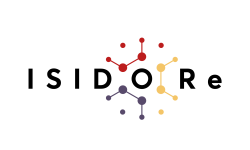As part of the ISIDORe network,Sonar-Global is offering European Commission-funded Social Science Services (TransNational Access or TNA). The first step in the process is selecting the appropriate service for your needs from our catalogue below.
*Service currently unavailable, please contact us for more information.
Concretely, Sonar-Global proposes to develop assessments and protocols for researchers & public health authorities to advance their own projects. Users should plan to implement these studies independently as the ISIDORe budget is limited and cannot support full projects. However, in special circumstances, Sonar-Global can implement small pilots in rare cases.
Sonar-Global also offers Facility Access to our partner institutions. This means you can request to spend time with our Access Providers in their centers for training and project development assistance. This tool is intended for increased international collaboration and capacity building.
If you do not see the Social Science Service you need above, please contact Sonar-Global_Services@pasteur.fr with a brief description of your planned activities and we will help you find what you need.
Once you have selected a service, complete the Pre-Application on the ISIDORe website. Note that the pre-application requires an ORCiD record. If you do not yet have an ORCiD record, this is very easy to generate at the ORCiD website. The pre-application also requires information about the goal of your project.
If you are interested in a Service provided in the country in which you work, you will need to form a User Group. Find out more about how to form a User Group here.
Once your pre-application is submitted, you will receive an email with your ISIDORe Identification number and the link to the Full Application.
Once you have submitted your application, the review process will begin. A pdf of the evaluation guidelines here.
If you have any questions about your application, do not hesitate to contact us via email.
 The ISIDORe project has received funding from the EU Horizon Europe research and innovation programme under grant agreement No. 101046133.
The ISIDORe project has received funding from the EU Horizon Europe research and innovation programme under grant agreement No. 101046133.